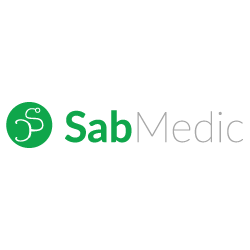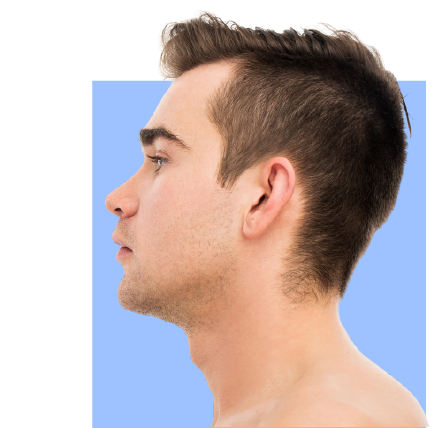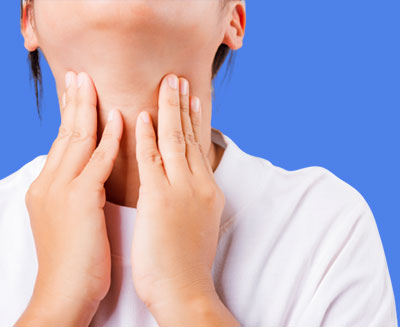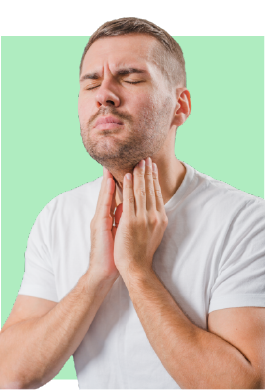What are paranasal sinuses?
The sinuses are cavities in the front of the skull that primarily influence breathing, voice, and smell.
The sinuses communicate with the nose through small, narrow channels. These cavities remain healthy if these channels are open; This allows the mucus produced within the sinuses and air to flow freely and drain into the nose.
There are four different sinuses:
- - Maxillary sinuses: located under the eyes and on both sides of the nose.
- - Ethmoidal sinuses: they are shaped like a honeycomb located in the middle of the eyes.
- - Frontal sinuses: located above the eyes in the forehead area.
- - Sphenoid sinuses: located at the bottom of the nose and in the center of the skull.
What is sinusitis?
Sinusitis, or an infection within the sinuses, affects about 1 in 8 adults annually and usually occurs when the channels that drain the sinuses into the nose become blocked and inflamed. This causes mucus to accumulate, filling the sinuses, and it becomes easily infected by a virus or bacteria.
The most common causes for which the tissue that lines the paranasal sinuses can become inflamed and obstruct the canal that drains into the nose are: allergies, infections (viruses, bacteria or fungi), dental problems, deformities inside the nose (deviated septum , polyps or nasal tumors) or medical conditions such as immune disorders or cystic fibrosis.
How can I know if I have sinusitis?
A sinus infection can be suspected by having nasal obstruction, pressure or pain in the front of the face that is worse when bending over, and thick yellow or green mucus draining from the nose or behind the throat.
What treatment should I take?
Most of the cases the infection of the paranasal sinuses is caused by a virus, this means that antibiotics are not required, it is only necessary to take medications to alleviate the symptoms and medications or measures that help to open the drainage channels and clean the paranasal sinuses.
If the discomfort lasts or worsens for more than 10 days, it is pertinent to suspect an infection by a bacterium and take an antibiotic.
In case there is inflammation within the paranasal sinuses without improvement with medical treatment or if there is any deformity inside the nose that obstructs the drainage of the paranasal sinuses, your doctor may suggest a surgical treatment called endoscopic nasal surgery.
What is endoscopic nasal surgery?
Endoscopic nasal surgery is a procedure performed under general anesthesia where a camera and small instruments are used to open and manipulate the sinus drains. The goal is to restore normal function of the nose and sinuses through minimally invasive surgery.
What to do before endoscopic nasal surgery?
If the doctor indicates it, it will be necessary to take antibiotics or anti-inflammatories before the surgery. Likewise, it is important to suspend medications or food supplements that increase the risk of bleeding, such as: aspirin, ibuprofen, NSAIDs, vitamin E, Ginko, antioxidants among others)
If for any medical indication you are taking any anticoagulant medication (for example: aspirin, warfarin, plavix, among others), consult a doctor and surgeon. It is also important to mention:
- If you have any allergies to latex, or any medication.
- Any unwanted reaction during previous procedures under anesthesia,
- History of excessive bleeding, bruising, clots (thrombosis) in the legs, brain, or down.
- Bring all blood, CT or MRI studies on the day of surgery.
- Avoid smoking at least six weeks before nasal endoscopic surgery, as it negatively affects healing and increases the risk of complications.
What to expect after endoscopic nasal surgery?
Recovery after endoscopic nasal surgery is generally easy and uncomplicated. Your surgeon can prescribe a number of medications to facilitate recovery and avoid complications. These include: pain relievers, antibiotics, nasal washes, and / or nasal spray.
Additionally, it is important that the following measures are considered to ensure a faster and better recovery:
- About 7-10 days off at home.
- Take the medications prescribed by the doctor.
- Traces of blood or clots in the first two weeks after surgery.
- Regular mustache change; it is normal to have a runny nose mixed with traces of blood.
- ABUNDANT bleeding is not normal and you should contact your doctor immediately.
- Continue with nasal washes until next review.
- Do not resist the urge to sneeze or cough, if you do sneeze or cough with your mouth open.
- After 48 hours you can gently blow your nose, (AVOID in case of nasal packing)
- It is considered normal for the nose to be plugged, the eyes water, a decrease in smell or taste, and to feel tired for the first few days after surgery.
- Avoid very spicy or spicy foods or very hot foods in the first 48 hours after surgery.
- Avoid aspirin or NSAIDs (such as ibuprofen) during recovery (they increase the risk of bleeding)
- Avoid consumption of alcohol and cigarettes.
* This information does not take the place of your doctor's advice. Please consult your healthcare provider for information about a specific medical condition.
References
- Flint, P. W., Hughey, B. H., Lund, V. J., Niparko, J. K., Robbins, K. T., Thomas, J. R., & Lesperence, M. M. (2015). Cummings otolaryngology–head & neck surgery. Philadelphia, PA: Elsevier/Saunders.
- Rosenfeld, R. M., Piccirillo, J. F., Chandrasekhar, S. S., Brook, I., Kumar, K. A., Kramper, M., … Corrigan, M. D. (2015). Clinical Practice Guideline (Update). Otolaryngology–Head and Neck Surgery, 152(4), 598–609. doi: 10.1177/0194599815574247
- Royal Australasian collegue of Surgeons: The Australian socety of otolaryngology – heand and neck surgery. (2016). Functional Endoscopic Sinus Surgery: A Guide for patients.Mo-tec Medical Publishing, Edition 6.










